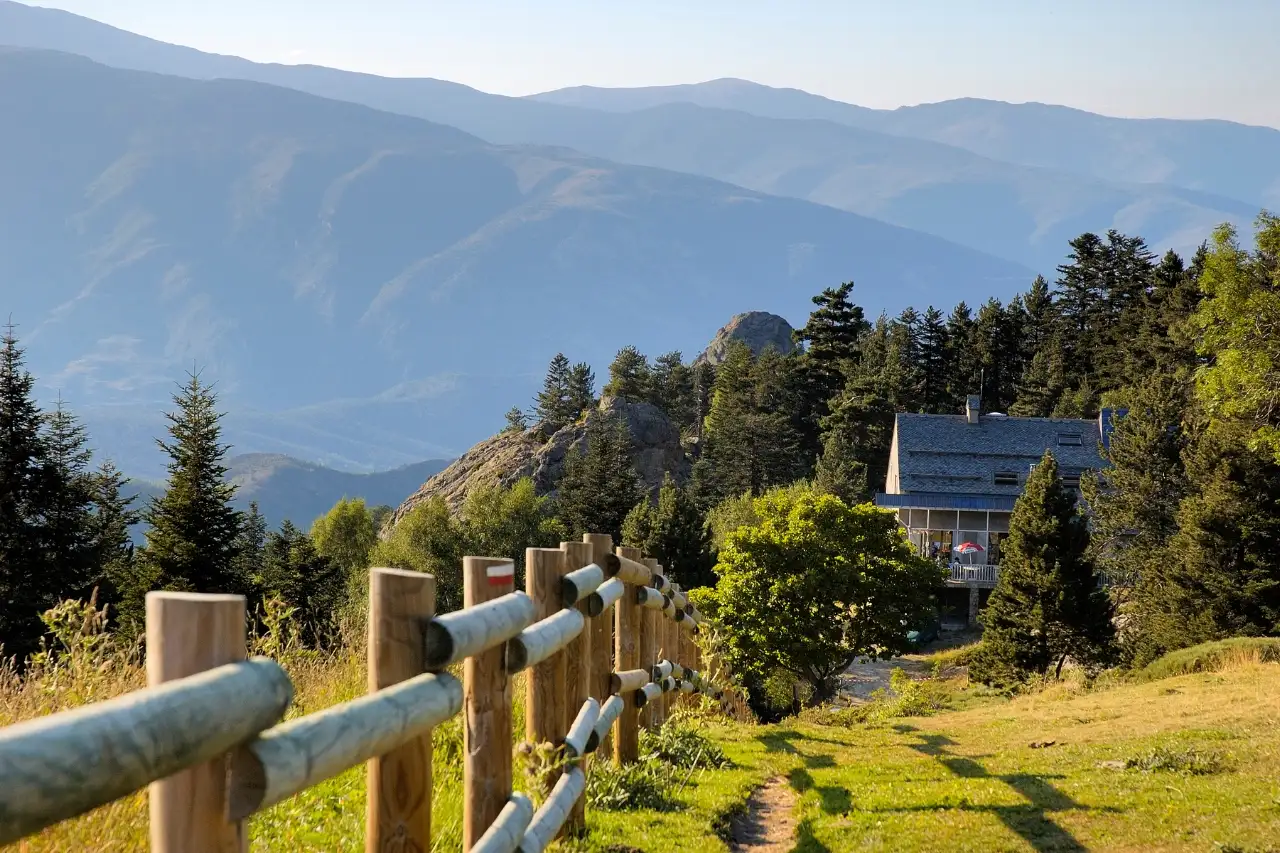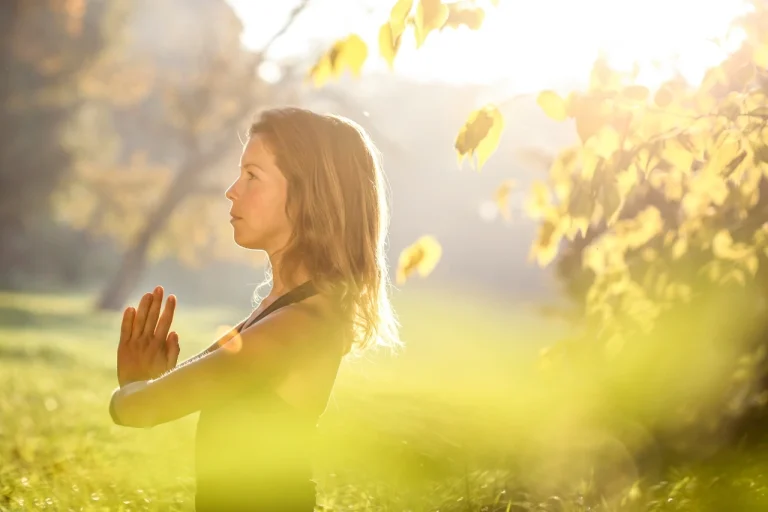Table of Contents
Spending time in nature has long been associated with relaxation and rejuvenation, but did you know that a nature retreat can also significantly improve your health and overall wellbeing? This article gives you knowledge on how immersing yourself in nature can lead to better physical and mental health, discusses various types of nature retreats, and provides tips on planning your own getaway. If you’re looking to reduce stress, boost your immune system, or simply find peace, a nature retreat could be the ultimate solution for your wellbeing.
The Science Behind Nature’s Healing Power
Have you ever wondered why a walk in the park or a weekend camping trip leaves you feeling refreshed and revitalized? The answer lies in the fascinating field of environmental psychology and the concept of biophilia. Coined by biologist E.O. Wilson, the biophilia hypothesis suggests that humans have an innate connection to nature, rooted in our evolutionary history.
Research continues to support this theory, showing that exposure to natural environments can significantly reduce stress levels and improve overall mental health. A study published in the journal “Scientific Reports” found that spending just 120 minutes a week in nature is associated with better health and wellbeing. This connection to the outdoors is so powerful that it’s even being prescribed by doctors as a form of ecotherapy.
Stress Reduction Through Nature Exposure
One of the most immediate benefits of a nature retreat is stress reduction. When we step into a forest or gaze out at a serene lake, our bodies respond by lowering cortisol levels – the hormone associated with stress. This natural stress relief can lead to:
- Decreased anxiety and depression
- Improved mood and emotional regulation
- Enhanced cognitive function and creativity
- Better sleep quality
Benefits on Mental Health
Beyond stress relief, nature retreats can have a significant positive impact on various aspects of mental health:
- Increased self-esteem and confidence
- Reduced symptoms of ADHD in children
- Improved focus and attention span
- Enhanced emotional resilience
The National Park Service recognizes the mental health benefits of nature and encourages visitors to explore America’s national parks as a form of natural therapy.
Physical Health Benefits
The benefits of a nature retreat extend well beyond mental wellbeing. Engaging in outdoor activities and breathing fresh air can lead to numerous physical health improvements:
- Boosted immune system function
- Lower blood pressure and reduced risk of cardiovascular disease
- Increased vitamin D levels from sun exposure
- Improved physical fitness through activities like hiking and swimming
Types of Nature Retreats
There are various types of nature retreats to suit different preferences and health needs. Each offers unique experiences and benefits, ensuring there’s something for everyone.
Forest Retreats

Forest retreats, also known as forest bathing, involve immersing oneself in a wooded environment. The serene atmosphere and fresh air help reduce stress and promote relaxation. Engaging in activities like hiking and wildlife observation in a forest setting can enhance your connection with nature and improve your overall health.
Mountain Retreats

Mountain retreats offer breathtaking views and the opportunity for physical activities such as hiking, rock climbing, and skiing. The altitude and cleaner air contribute to improved respiratory health and increased physical stamina. Mountain retreats also provide a sense of solitude and tranquility, perfect for mental rejuvenation.
Beach Retreats

Beach retreats are ideal for those who find peace by the sea. The sound of waves, the feel of sand underfoot, and the salty air all contribute to a relaxing and rejuvenating experience. Water activities such as swimming, kayaking, and paddleboarding offer both fun and exercise, enhancing physical health and wellbeing.
Desert Retreats

Desert retreats might not be the first option that comes to mind, but they offer a unique and tranquil escape. The vast, open spaces and clear skies provide a perfect backdrop for meditation and mindfulness practices. The warm, dry climate can be beneficial for those with respiratory issues, and the simplicity of the desert landscape encourages introspection and mental clarity.
Activities at Nature Retreat for Ultimate Wellbeing
Engaging in various activities during a nature retreat can significantly enhance health benefits. Here are some popular options:
Forest Bathing (Shinrin-yoku)
Originating in Japan, forest bathing is a practice that involves immersing yourself in the forest atmosphere using all your senses. It’s not about exercise or hiking, but rather about being present in nature. To try forest bathing:
- Find a quiet spot in the woods
- Slow down and breathe deeply
- Notice the sights, sounds, smells, and textures around you
- Spend at least 20 minutes in quiet contemplation
Research has shown that forest bathing can lower blood pressure, reduce stress hormone production, and boost the immune system. It’s a powerful tool for both physical and mental well-being.
Hiking and Nature Walks
Hiking and walking are excellent ways to explore natural surroundings while getting a good workout. These activities improve cardiovascular health, strengthen muscles, and promote mental clarity. Plus, they allow you to connect with nature on a deeper level.
Yoga and Meditation
Practicing yoga and meditation in a natural setting can amplify their benefits. The calming environment helps deepen your practice, reduce stress, and improve mental focus. Whether you’re a beginner or an experienced practitioner, incorporating yoga and meditation into your nature retreat can lead to profound health improvements.
Wildlife Observation
Spending time observing wildlife can be both educational and therapeutic. It encourages mindfulness and patience while fostering a deeper appreciation for the natural world. Bird watching, for example, can be a meditative experience that enhances your connection to nature.
Water Activities
Water activities such as swimming, kayaking, and paddleboarding offer a fun and refreshing way to stay active. These activities provide a full-body workout, improve cardiovascular health, and promote relaxation. Being in or near water also has a calming effect, reducing stress and anxiety.
Nature Photography
Capturing the beauty of your surroundings through photography can be a meditative and creative outlet. It encourages you to slow down and notice the details of the natural world. Try these photography exercises:
- Macro photography of small natural objects
- Landscape shots at different times of day
- Wildlife photography (from a respectful distance)
- Time-lapse sequences of natural phenomena
Remember, the act of observing and photographing nature is often more important than the resulting images.
Digital Detox
One of the most significant benefits of a nature retreat is the opportunity to disconnect from technology. A digital detox allows you to fully immerse yourself in the natural environment, fostering mindfulness and reducing stress. By taking a break from screens and notifications, you can recharge both mentally and physically.
Mindfulness Practices
Incorporating mindfulness practices such as deep breathing, journaling, or simply sitting in silence can enhance the health benefits of a nature retreat. These practices help you stay present, reduce stress, and improve overall wellbeing.
Planning Your Nature Retreat
To get the most out of your nature retreat, careful planning is essential. Here are some tips to help you prepare:
Choosing the Right Location
The first step in planning your retreat is selecting a location that resonates with you. Consider these popular options:
- Forests: Immerse yourself in the tranquil atmosphere of a woodland setting
- Mountains: Challenge yourself with invigorating hikes and breathtaking views
- Coastal areas: Let the rhythmic waves soothe your mind and spirit
- National parks: Explore diverse ecosystems and connect with America’s natural heritage
When choosing your destination, consider factors such as accessibility, climate, and the types of activities available. Remember, the goal is to find a place that allows you to disconnect from daily stressors and reconnect with the natural world.
Best Times to Visit When Planning Nature Retreat
Timing is crucial when planning your nature retreat. Research the best seasons to visit your chosen location to ensure optimal weather conditions and avoid peak tourist times. This will enhance your experience and allow you to fully enjoy the natural surroundings.
What to Pack When Planning Nature Retreat
Packing the right gear is essential for a successful nature retreat. Here are some items to consider:
- Comfortable clothing and footwear suitable for outdoor activities
- Reusable water bottle
- Sun protection (hat, sunscreen, sunglasses) and insect repellent
- Sturdy hiking boots or walking shoes
- Navigation tools (map, compass, or GPS device)
- First aid kit
- Healthy snacks and meals
- Journal or sketchbook for mindfulness practices
- Camera to document your experience
Tips for Making the Most of Your Retreat
- Set clear intentions for your retreat and what you hope to achieve.
- Plan a balanced itinerary that includes both active and restful activities.
- Stay present and mindful throughout your retreat.
- Be flexible and open to new experiences.
- Take time to reflect on your experiences and their impact on your health and wellbeing.
FAQ’s About Nature Retreat
What is a nature retreat?
A nature retreat is a getaway that involves spending time in natural environments to improve health and wellbeing. These retreats can include activities such as hiking, yoga, meditation, and wildlife observation.
How do nature retreats improve health and wellbeing?
Nature retreats improve health and wellbeing by reducing stress, enhancing mood, boosting physical fitness, and promoting mental clarity. Spending time in nature has been shown to have numerous psychological and physical benefits.
What should I pack for a nature retreat?
When packing for a nature retreat, consider items such as:
Comfortable clothing and footwear suitable for outdoor activities
Reusable water bottle
Sun protection (hat, sunscreen, sunglasses) and insect repellent
Sturdy hiking boots or walking shoes
Navigation tools (map, compass, or GPS device)
First aid kit
Healthy snacks and meals
Journal or sketchbook for mindfulness practices
Camera to document your experience
How long should a nature retreat be to see benefits?
The length of a nature retreat can vary, but even a short weekend getaway can offer significant health benefits. For more profound and lasting effects, consider longer retreats of a week or more.
Are nature retreats suitable for everyone?
Yes, nature retreats are suitable for people of all ages and fitness levels. It’s important to choose activities and locations that match your personal preferences and health needs.
Nature retreats offer a powerful way to improve your health and wellbeing. By immersing yourself in natural environments and engaging in activities that promote physical and mental health, you can experience profound benefits. Whether you choose a forest, mountain, beach, or desert retreat, taking time to reconnect with nature can lead to a happier, healthier life. Start planning your nature retreat today and discover the ultimate path to wellbeing.


































